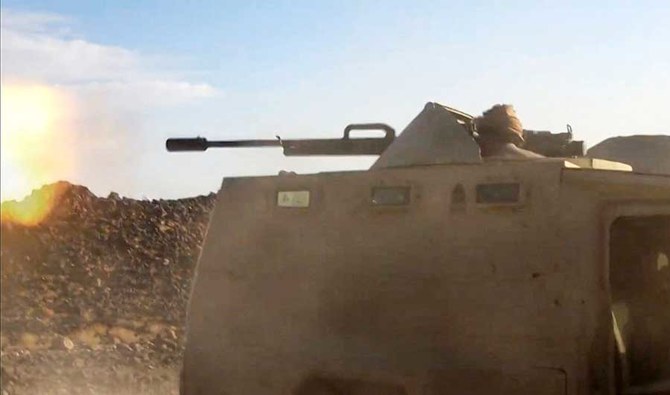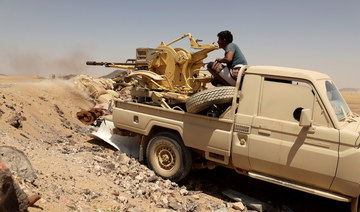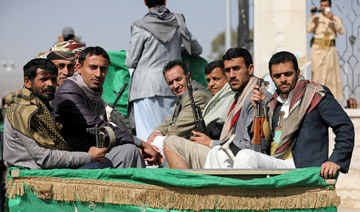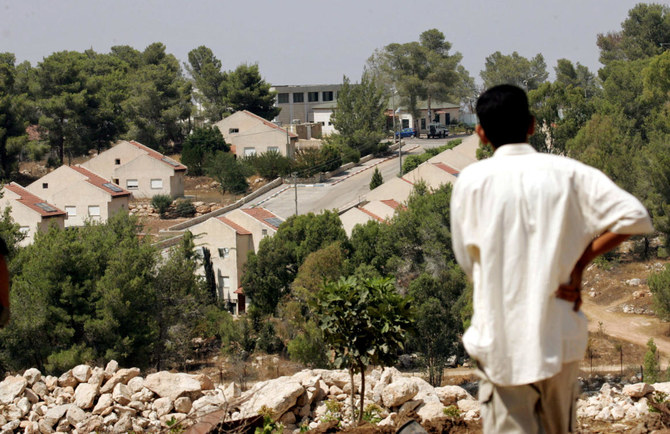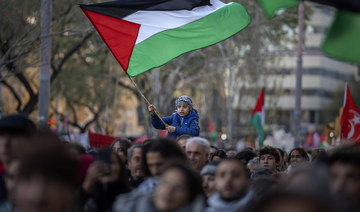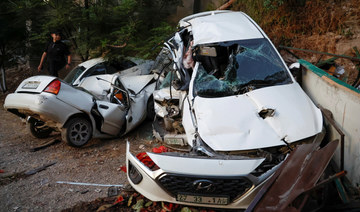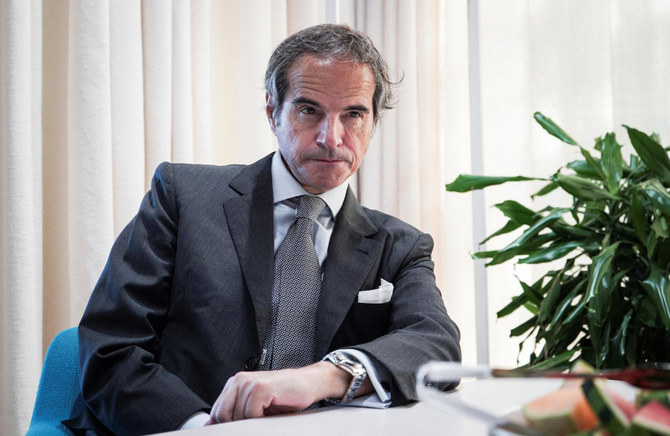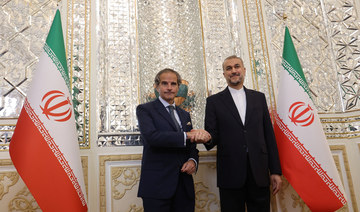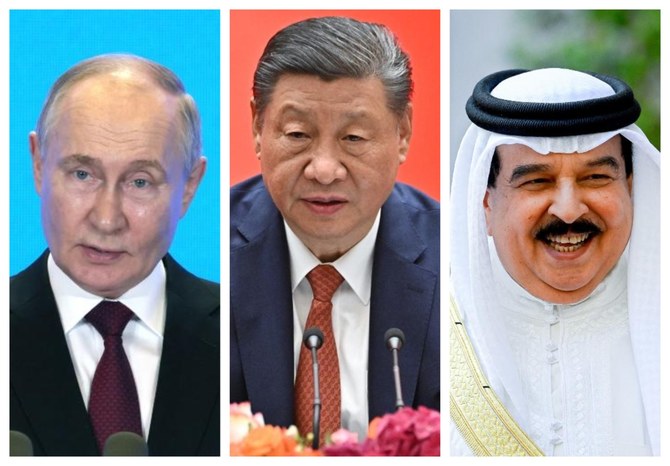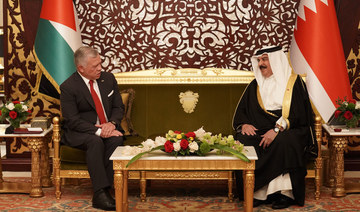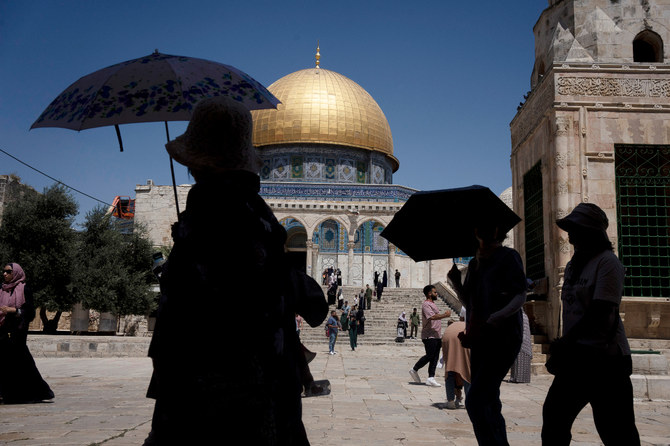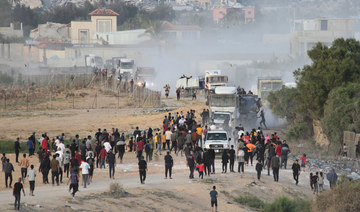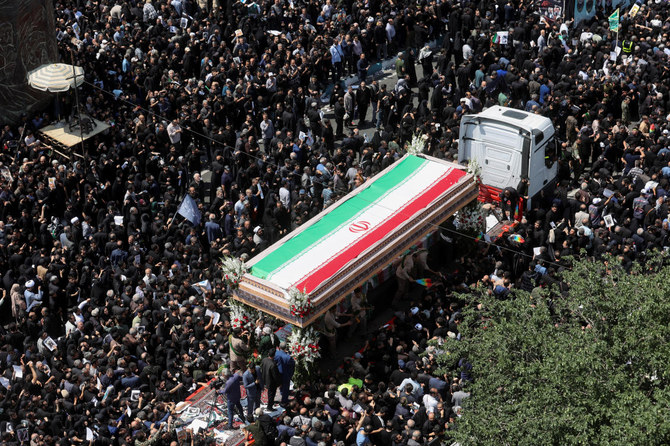TEL AVIV, Israel: Israel’s far right national security minister, Itamar Ben Gvir, visited Jerusalem’s Al Aqsa Mosque compound on Wednesday, declaring the contested holy site belongs “only to the state of Israel.”
Ben-Gvir said Wednesday’s visit was a response to a move by three European countries to unilaterally recognize an independent Palestinian state.
“We will not even allow a statement about a Palestinian state,” he said.
The hilltop compound is revered by Jews and Muslims, and the conflicting claims have led to numerous rounds of violence in the past.
Israel allows Jews to visit the compound, but not to pray there. But the visit is likely to be seen around the world as a provocation.
Norway, Ireland and Spain said Wednesday they are recognizing a Palestinian state in a historic move that drew condemnation from Israel and jubilation from the Palestinians. Israel immediately ordered back its ambassadors from Norway and Ireland.
The formal recognition will be made on May 28. The development is a step toward a long-held Palestinian aspiration that came against the backdrop of international outrage over the civilian death toll and humanitarian crisis in the Gaza Strip following Israel’s offensive there.
It was a lightning cascade of announcements. First was Norway, whose Prime Minister Jonas Gahr Støre said “there cannot be peace in the Middle East if there is no recognition.”
“By recognizing a Palestinian state, Norway supports the Arab peace plan,” he said and added that the Scandinavian country will “regard Palestine as an independent state with all the rights and obligations that entails.”
Several European Union countries have in the past weeks indicated that they plan to make the recognition, arguing a two-state solution is essential for lasting peace in the region. The decision may generate momentum for the recognition of a Palestinian state by other EU countries and could spur further steps at the United Nations, deepening Israel’s isolation.
Norway, which is not a member of the EU but mirror its moves, has been an ardent supporter of a two-state solution between Israel and the Palestinians.
“The terror has been committed by Hamas and militant groups who are not supporters of a two-state solution and the state of Israel,” the Norwegian government leader said. “Palestine has a fundamental right to an independent state.”
Since the unprecedented attack by Hamas-led militants on Israel on Oct. 7, Israeli forces have led assaults on the northern and southern edges of the Gaza Strip in May, causing a new exodus of hundreds of thousands of people, and sharply restricted the flow of aid, raising the risk of famine.
Wednesday’s announcements come more than 30 years after the first Oslo agreement was signed in 1993. Since then, “the Palestinians have taken important steps toward a two-state solution,” the Norwegian government said.
It added that the World Bank determined that a Palestinian state had met key criteria to function as a state in 2011, that national institutions have been built up to provide the population with important services.
“The war in Gaza and the constant expansion of illegal settlements in the West Bank still mean that the situation in Palestine is more difficult than it has been in decades,” it said.
In making his announcement, Irish Prime Minister Simon Harris said the move was coordinated with Spain and Norway — and that it was a “historic and important day for Ireland and for Palestine.” He said it was intended to help move the Israeli-Palestinian conflict to resolution through a two-state solution.
Harris said he thinks other countries will join Norway, Spain and Ireland in recognizing a Palestinian state “in the weeks ahead.”
Spanish Prime Minister Pedro Sánchez, Spain’s Socialist leader since 2018, made the expected announcement to the nation’s Parliament on Wednesday. He had spent months touring European and Middle Eastern countries to garner support for the recognition, as well as for a possible ceasefire in Gaza. He has said several times that he was committed to the move.
“We know that this initiative won’t bring back the past and the lives lost in Palestine, but we believe that it will give the Palestinians two things that are very important for their present and their future: dignity and hope,” Sánchez said.
“This recognition is not against anyone, it is not against the Israeli people,” Sánchez added, while acknowledging that it will most likely cause diplomatic tensions with Israel. “It is an act in favor of peace, justice and moral consistency.”
Sánchez argued that the move is needed to support the viability of a two-state solution that he said “is in serious danger” with the war in Gaza.
“I have spent weeks and months speaking with leaders inside and outside of the region and if one thing is clear is that Prime Minister (Benjamin) Netanyahu does not have a project of peace for Palestine, even if the fight against the terrorist group Hamas is legitimate,” the Spanish leader said.
Earlier this month, Spain’s Foreign Minister José Albares said he had informed US Secretary of State Antony Blinken of his government’s intention to recognize a Palestinian state.
Hugh Lovatt, a senior policy fellow at the European Council on Foreign Relations, said “recognition is a tangible step toward a viable political track leading to Palestinian self-determination.”
But in order for it to have an impact, he said, it must come with “tangible steps to counter Israel’s annexation and settlement of Palestinian territory – such as banning settlement products and financial services.”
Israel’s Foreign Minister Israel Katz ordered Israel’s ambassadors from Ireland and Norway to immediately return to Israel. He spoke before Spain’s announcement.
“Ireland and Norway intend to send a message today to the Palestinians and the whole world: terrorism pays,” Katz said.
He said that the recognition could impede efforts to return Israel’s hostages being held in Gaza and makes a ceasefire less likely by “rewarding the jihadists of Hamas and Iran.” He also threatened to recall Israel’s ambassador to Spain if the country takes a similar position.
Regarding the Israeli decision to recall its ambassador in Oslo, Gahr Støre said “we will take note of that. This is a government with which we have many disagreements. What we agree on is to condemn Hamas’s cruel attack on Oct. 7.”
Palestinian President Mahmoud Abbas, speaking after Norway’s announcement, welcomed the move and called on other countries to follow.
In a statement carried by the official Wafa news agency, Abbas said Norway’s decision will enshrine “the Palestinian people’s right to self-determination” and support efforts to bring about a two-state solution with Israel.
Some 140 countries have already recognized a Palestinian state — more than two-thirds of United Nations members — but none of the major Western powers has done so. This move could put more pressure continental heavyweights France and Germany to reconsider their position.
The United States and Britain, among others, have backed the idea of an independent Palestinian state existing alongside Israel as a solution to the Middle East’s most intractable conflict. They insist, however, that Palestinian independence should come as part of a negotiated settlement.
The head of the Arab League called the step taken by the trio of European nations as “a courageous step.”
“I salute and thank the three countries for this step that puts them on the right side of history in this conflict,” Arab League Secretary-General Ahmed Aboul-Gheit wrote on the social media platform X.
Turkiye also applauded the decision, calling it an important step toward the restoration of the “usurped rights of the Palestinians.”
The Turkish Foreign Ministry also said the move would help “Palestine gain the status it deserves in the international community.”



